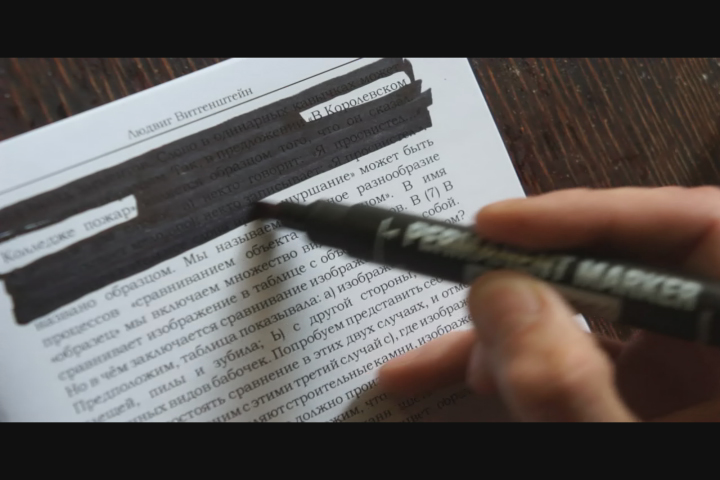Arsenev works with the fraught artistic tradition of Duchamp, who conceptualized and practiced the scandal of arbitrary naming. Preserving only the name of art, Duchamp at once mechanized the work of the painter (bringing it closer to the binary code of the text) and liberated and diversified it (granting it a freedom like that of literature in relation to its object of reference). In creating “ready-written” verse Arsenev aims to achieve something of the same effect with poetry. Translating text into video format, Arsenev’s film “A note from the translator” is constructed around a poem composed of ready-made lines from Ludwig Wittgenstein’s Blue and Brown Books. The only utterance unambiguously denoting his authorship –– an epigraph taken from Wittgenstein –– is also rewritten, underlined, and marked by the hand of another. The rest of the textual snippets, the authorship of which is still more difficult to establish, are created in a process even more mechanistic and removed from any sense of ownership, all with an end to problematizing the conditions of the labor of contemporary poetic subjectivity. This effect is possible today only thanks to broadly conceived notions of artistic media.
Venues:
- [Textologies], S-Petersburg, 2013; Krasnoyarsk, 2013
- «Another capital», Museum of Moscow, 2014
- Image as a word. Mediapoetry as a method, Petersburg, 2016
